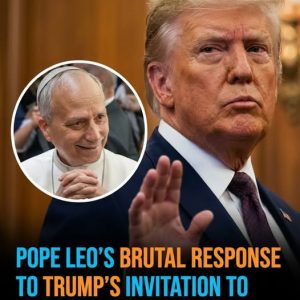Former President Donald Trump has won unusually broad bipartisan praise for negotiating a landmark ceasefire between Israel and Hamas, effectively bringing a pause—if not an end—to more than two years of relentless warfare. The war began with the devastating October 2023 Hamas attack, which killed about 1,300 Israelis and took over 250 hostage. Israel’s response was ferocious and destructive, resulting in massive civilian casualties, widespread displacement, and a deepening humanitarian crisis in Gaza. Against this bleak backdrop, Trump’s surprising direct involvement in brokering a peace deal—including the release of the remaining hostages—has become his most unexpected and potentially defining foreign policy win in this period.
The breakthrough came via intense, behind-the-scenes diplomacy involving key regional players such as Qatar, Egypt, and others, who helped bridge communication between Israel and Hamas. According to the agreement, all living Israeli hostages—reportedly 20 in total—would be released soon, and Israel would pull its troops back to an “agreed-upon line.” In turn, Israel would free a large contingent of Palestinian prisoners: the deal reportedly calls for releasing around 250 people serving life sentences plus roughly 1,700 Gazans detained after October 7, 2023, including all women and children in that group. Trump’s 20-point peace plan outlines these as first-phase steps and promises a broader framework: rebuilding Gaza, establishing international security forces, and eventually reforming governance.
Reactions in the United States were striking for their cross-party warmth, especially considering how polarized American politics has become. Some of Trump’s long-standing Democratic critics publicly credited him for the deal. Former President Bill Clinton, for instance, praised Trump’s persistence, calling it “great credit.” Senate Minority Leader Chuck Schumer, often sharply critical of Trump in the past, called the hostage release “a wonderful day.” These acknowledgments underscored how emotionally charged the hostage issue was—and how profound the relief felt by many across the political spectrum.
At the same time, more cautious voices among Democrats celebrated the ceasefire mainly for its immediate humanitarian benefits. Figures like House Minority Leader Hakeem Jeffries and former President Barack Obama highlighted the renewed flow of aid—food, medicine, and essential relief—to Gaza’s suffering population. But notably, they stopped short of lauding Trump himself, showing that while they supported the outcome, political sensitivities and strategic caution still shaped their public messaging. Their responses reflect a delicate balance: endorsing life-saving peace while being wary of giving too much credit to a deeply polarizing figure.
On the international stage, the deal also sparked significant support. European leaders such as France’s President Emmanuel Macron and Germany’s Chancellor Friedrich Merz publicly commended the agreement, calling it a moment of new hope not just for hostages and their families, but for the broader Middle East. Regional mediators—Qatar, Egypt, Turkey—were acknowledged by Trump as instrumental to the deal. Their involvement reflects a renewed multilateral push to stabilize Gaza, with Trump casting the deal as the start of “a strong, durable and everlasting peace.”
Despite the euphoria, the agreement is fragile, and key details remain unresolved. Observers note that while the first phase centers on hostage exchanges and troop withdrawals, thornier issues such as the disarmament of Hamas and the long-term political future of Gaza are still up in the air. Critics warn that without guarantees, the ceasefire could collapse—or become merely a temporary pause. Even some Israeli voices express concern: releasing so many prisoners, including high-profile Hamas figures, could pose future security risks.
Ultimately, Trump framed the deal as more than just a diplomatic win: he called it a turning point, urging both sides to move beyond cycles of violence and retaliation. He argued that sustained international cooperation and trust-building will be essential to preserve the fragile momentum. However, he also acknowledged uncertainty: no one can predict whether this ceasefire will hold or evolve into lasting peace. Still, for now, the rare bipartisan praise in Washington reflects how deeply the hostage crisis has resonated—and how meaningful this breakthrough has become, even among his critics.





